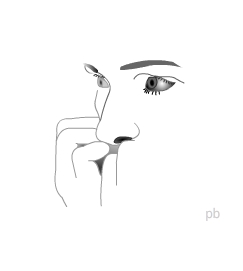 The impact of anxiety and chronic stress on cardiovascular health has been studied less frequently than the impact of depression. Anxiety due to psychosocial stressors has long been linked to hypertension.
The impact of anxiety and chronic stress on cardiovascular health has been studied less frequently than the impact of depression. Anxiety due to psychosocial stressors has long been linked to hypertension. The impact of anxiety and chronic stress on cardiovascular health has been studied less frequently than the impact of depression. Anxiety due to psychosocial stressors has long been linked to hypertension.
The impact of anxiety and chronic stress on cardiovascular health has been studied less frequently than the impact of depression. Anxiety due to psychosocial stressors has long been linked to hypertension.
Anxiety can result in autonomic arousal increasing circulating catecholamines. The development of hypertension and a pro-inflammatory state from anxiety increases the chances of developing coronary heart disease (Chauvet-Gelinier & Bonin, 2017; Player & Peterson, 2011).
Scherrer et al. (2010) isolated the impact of anxiety from depression in a study of MI patients. While depression was found to be a factor in the incidence of MIs, they found anxiety to increase the incidence of an MI in patients without depression.
In a prospective Heart and Soul study, Martens et al. (2010) followed 1,015 outpatients to evaluate the effect of generalized anxiety disorder (GAD) on subsequent cardiovascular events. Three hundred and seventy-one cardiovascular events occurred. The GAD group represented 9.6% of those who had a cardiovascular event as compared with the 6.6% non-GAD participants.
Treatment for anxiety
Treatment for anxiety can include medication and/or therapy, as well as social support and exercise. Cognitive therapy, with particular emphasis on not catastrophizing events, is also recommended.
Some patients with anxiety disorders will also respond to the antidepressant medications. The Benzodiazepines are the most commonly prescribed anti-anxiety medications for patients with cardiovascular disease. Those include Xanax or Niravam (alprazolam), Klonopin (clonazepam), Ativan (lorazepam), and Valium (diazepam).
Wu et al. (2014) found a reduction in the incidence of MIs in patients taking Benzodiazepines as long as the dose was less than 5 mg. Larger dosages resulted in less favorable outcomes.
Chronic stress
Chauvet-Gelinier and Bonin (2017) state the field of psychobiological theory can help describe the link between psychological factors and physical illness, particularly cardiovascular disease. Cautioning that coping style, personality traits, or social support might modulate the stress response, chronic stress can increase the allostatic load, the wear and tear on the body from stress, to a detrimental level. The researchers describe that stress mechanism as occurring as follows:
Stress management
van Montfort, et al. (2015) reinforce the cardiovascular risks occurring because of chronic stress. They have found the following to be helpful in reducing stress:
- Psychological information
- Psychotherapy about stress reduction
- Learning coping strategies
- Improving cognitive and behavioral strategies
These methods have been found to improve cardiac outcomes, better treatment adherence and rehabilitation adherence (van Montfort, et al., 2015).
Lucetti, et al (2015) also found conscientiousness, openness and extraversion to be personality characteristics that lead to better chronic stress management. These three characteristics, particularly conscientiousness, lead to better long-range goal production, organizing and planning ways to achieve goals and pushing through difficult times to achieve them.
References
© RnCeus.com